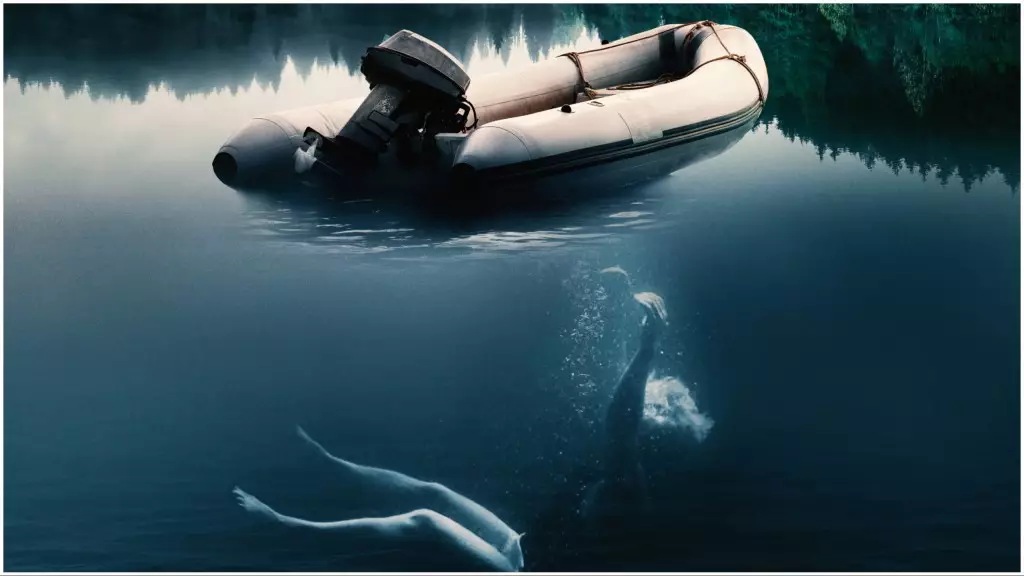“In Cold Water,” the riveting new true crime docuseries available on Prime Video and Sky New Zealand, explores the harrowing circumstances surrounding the drowning of schoolteacher Laura Letts-Beckett during a fishing trip in the majestic yet chilling Canadian Rocky Mountains. The case takes a haunting turn when her husband, Peter Beckett, a former New Zealand city councilor, finds himself at the center of a murder investigation years after Laura’s tragic demise. With his testimony as the only eyewitness, the complexities of grief, suspicion, and the search for justice weave an intricate tapestry that captivates and horrifies viewers in equal measure.
The series, produced by Canada’s C3 Media and New Zealand’s AJP Productions, shines a light on the intertwining of personal tragedy and systemic injustice. By taking a closer look at the overwhelming evidence and the investigation processes, “In Cold Water” serves as a reflective commentary on how narratives can shift dramatically based on perspective, emotion, and the relentless pursuit of truth.
The Perspective of a Survivor
The docuseries provides an intimate glimpse into the mind of Peter Beckett as he recalls the fateful day. His vivid account, marked by anguish and desperation, paints a picture of a man grappling with a profound sense of loss. “I heard the splash… Laura wasn’t there,” he reflects, invoking a raw emotional response. His intense description of desperate attempts to rescue her, claiming that he could not reach her in the water, not only evokes sympathy but also raises essential questions about his reliability as a witness.
Throughout the series, Peter’s narrative challenges viewers to confront their assumptions while grappling with the emotional weight of loss and guilt. It is a poignant reminder of how tragedy can distort reality, creating layers of confusion and complicated feelings in its wake. This psychological depth adds a rich texture to the storytelling, inviting the audience to consider the struggles of those left behind.
However, the emotional intensity of Peter’s account is met with scrutiny, particularly from retired Canadian police officer Jacquie Olsen. She raises critical questions about the credibility of Peter’s testimony, asserting, “His story did not make sense.” This confrontation serves as a powerful narrative device, illustrating the struggle between personal grief and objective truth. It underscores an essential theme of the series: the complexities surrounding guilt and innocence are seldom clear-cut.
The juxtaposition of personal tragedy against the cold, hard facts of a legal investigation enriches the story’s depth, revealing how flawed human emotions can intersect with the justice system’s rigors. The often nebulous nature of truth is brought to the forefront, echoing sentiments expressed by C3 Media President Pablo Salzman—true crime narratives resonate because they delve deep into human motivations and the multifaceted nature of right and wrong.
The broader implications of “In Cold Water” extend beyond the confines of this singular case. As Salzman notes, the allure of true crime documentaries lies not just in the crime itself but in the exploration of human motivations and the search for justice. The series compels viewers to delve into uncomfortable truths and moral ambiguities. This thematic exploration taps into a growing audience’s fascination with the deeper psychological motivations behind crimes and the societal structures ultimately responsible for justice—or lack thereof.
Moreover, the involvement of a producer with a personal connection to the story adds an interesting layer to the narrative, reflecting the intimate connections that often exist within these real-life cases. It demonstrates the power of storytelling in shedding light on complex issues, revealing how personal stakes can lend a voice to the often voiceless tragedies that permeate our societies.
Premiering globally on November 12, “In Cold Water” promises to be much more than a standard true crime series. It stands as an intricate examination of grief, disbelief, and the malleability of personal narratives. As viewers embark on this emotional journey, they will not only witness a profound personal tragedy but also confront their beliefs about justice and truth—a testament to the power of storytelling in illuminating the darkest corners of human experience. With such profound layers, it’s clear that “In Cold Water” is poised to captivate and disturb, leaving a lasting impression on its audience long after the credits roll.

